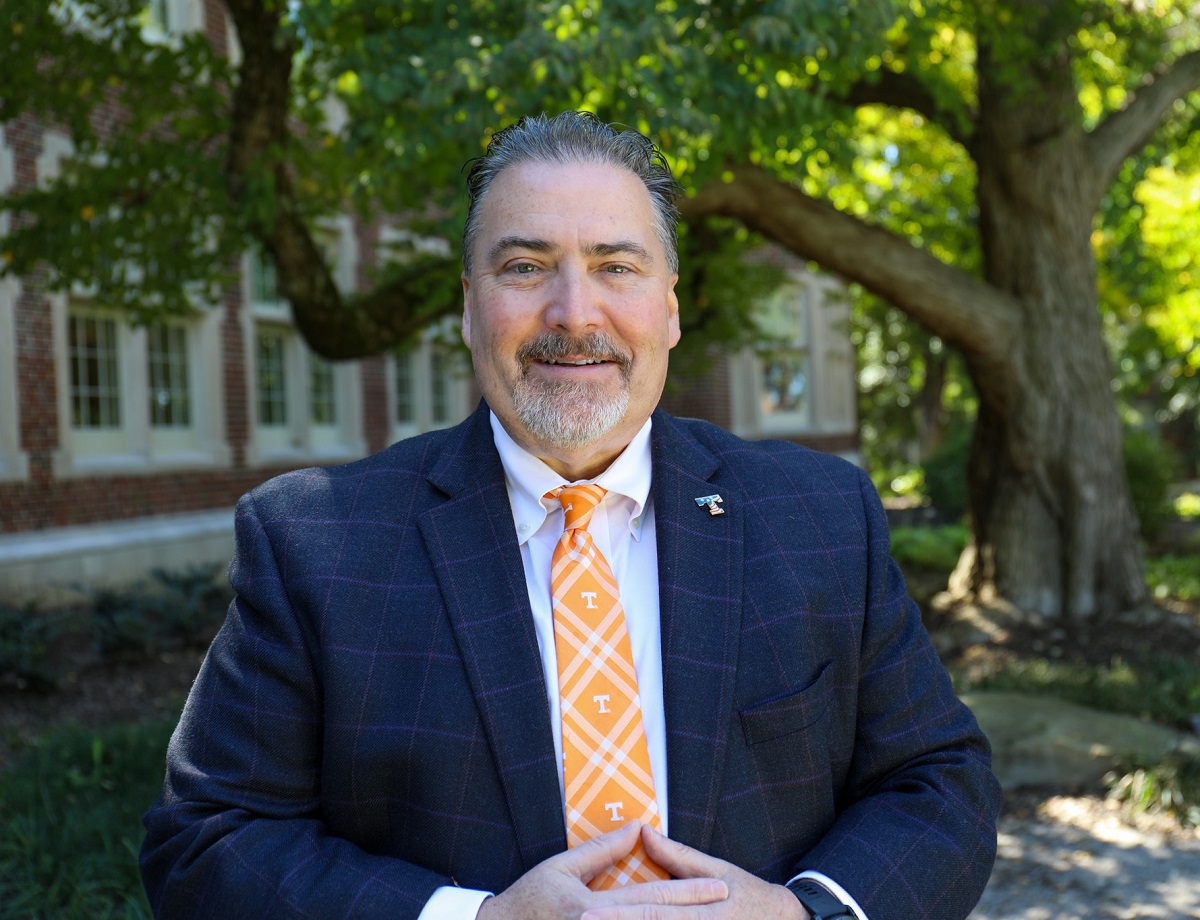
Herbert College of Agriculture Dean Among Those Elected
KNOXVILLE, Tenn. — Four faculty members at the University of Tennessee, Knoxville, have been elected 2024 Fellows of the American Association for the Advancement of Science, and Herbert College of Agriculture Dean and Professor David G. White is among them.
AAAS Fellows are elected to a lifetime appointment annually by their peers on the AAAS Council in recognition of their extraordinary achievements.
In addition to White, elected faculty from UT Knoxville are Professor Albrecht von Arnim of the Department of Biochemistry and Cellular and Molecular Biology; Alison Buchan, the Carolyn W. Fite Professor and associate head of the Department of Microbiology; and Research Professor Susan Kalisz of the Department of Ecology and Evolutionary Biology.
“Our newly elected AAAS Fellows help ensure UT remains a world-class research university through their pioneering work,” said Deborah Crawford, vice chancellor for research, innovation and economic development. “Every day they are redefining how to tackle big problems with creativity and innovation, as well as educating and mentoring our next generation of groundbreaking scientists.”
More about David G. White
Antibiotic use in animals, especially in food production, is a public health concern because it can lead to antibiotic-resistant bacteria that can spread to humans, making infections harder to treat.
David G. White, dean of UT’s Herbert College of Agriculture and a professor of food science, has spent his career focusing on the intersections of animal health, food safety and human health through a One Health approach. One Health recognizes that the health of humans, animals and ecosystems are interconnected and is particularly relevant when it comes to addressing an issue like antibiotic resistance, where a multidisciplinary approach is needed to combat the global spread.
“My specific area as a molecular microbiologist was characterizing how bacterial pathogens developed resistance to antimicrobials used in veterinary and human medicine and deciphering potential public health implications,” White explained. “A great deal of my work focused on accurately assessing the risks associated with different antimicrobial classes used in food-producing animals and developing coordinated, collaborative and cross-sectoral approaches to mitigate spread across multiple ecosystems.”
Although White developed “the bug” for research about halfway through his animal science undergraduate program, he eventually evolved to translating his research into national and international policy. He spent many years serving in the U.S. Food and Drug Administration, where he had an opportunity to help set global policy for agencies such as the World Health Organization, the World Organization for Animal Health and the Codex Ad Hoc Intergovernmental Task Force on Antimicrobial Resistance. White is a past member of the Presidential Advisory Council on Combating Antibiotic-Resistant Bacteria and currently serves on the WHO Advisory Group on Critically Important Antimicrobials for Human Medicine.
“Addressing the problem of antimicrobial resistance is a top priority of federal and international health agencies globally, and much still needs to be done regarding understanding the factors that drive emergence and spread, assessing economic impacts and finding viable mitigation strategies,” he said.
Asked what brings him joy in his current role at UT, White was quick to point to educating the next generation of microbiologists and One Health experts.
“Established microbiologists are getting older, and we need young investigators entering the field to determine both the drivers of emerging antibiotic resistance and what are the most effective measures to mitigate this worldwide problem,” he said. “The highly sought magic bullet has still not been discovered, and antimicrobial resistance is not likely to go away any time soon, so using these miracle drugs as judiciously as possible is the key to minimize negative impacts to both animal and human health.”
See UT Knoxville News for details about all the newly elected UT Knoxville AAAS Fellows.
The University of Tennessee Institute of Agriculture is comprised of the Herbert College of Agriculture, UT College of Veterinary Medicine, UT AgResearch and UT Extension. Through its land-grant mission of teaching, research and outreach, the Institute touches lives and provides Real. Life. Solutions. to Tennesseans and beyond. utia.tennessee.edu.